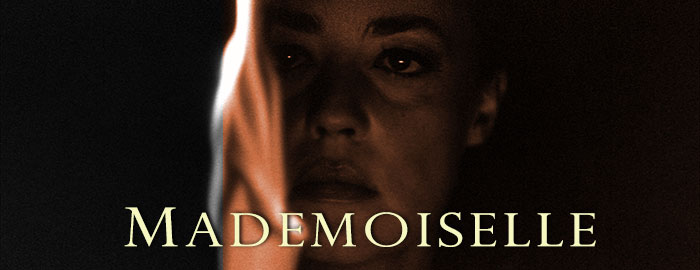

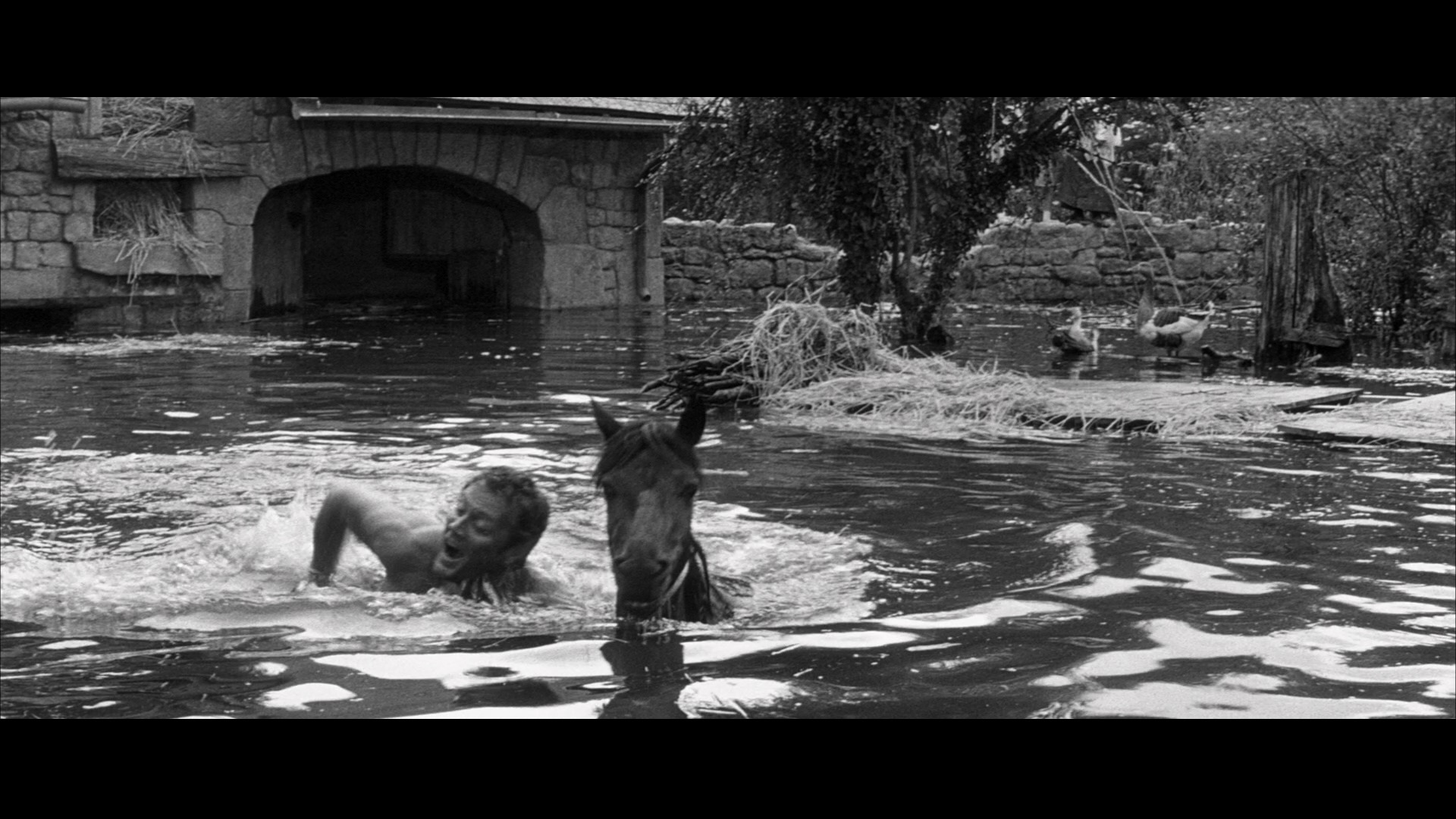 line between art cinema and shocking
line between art cinema and shocking 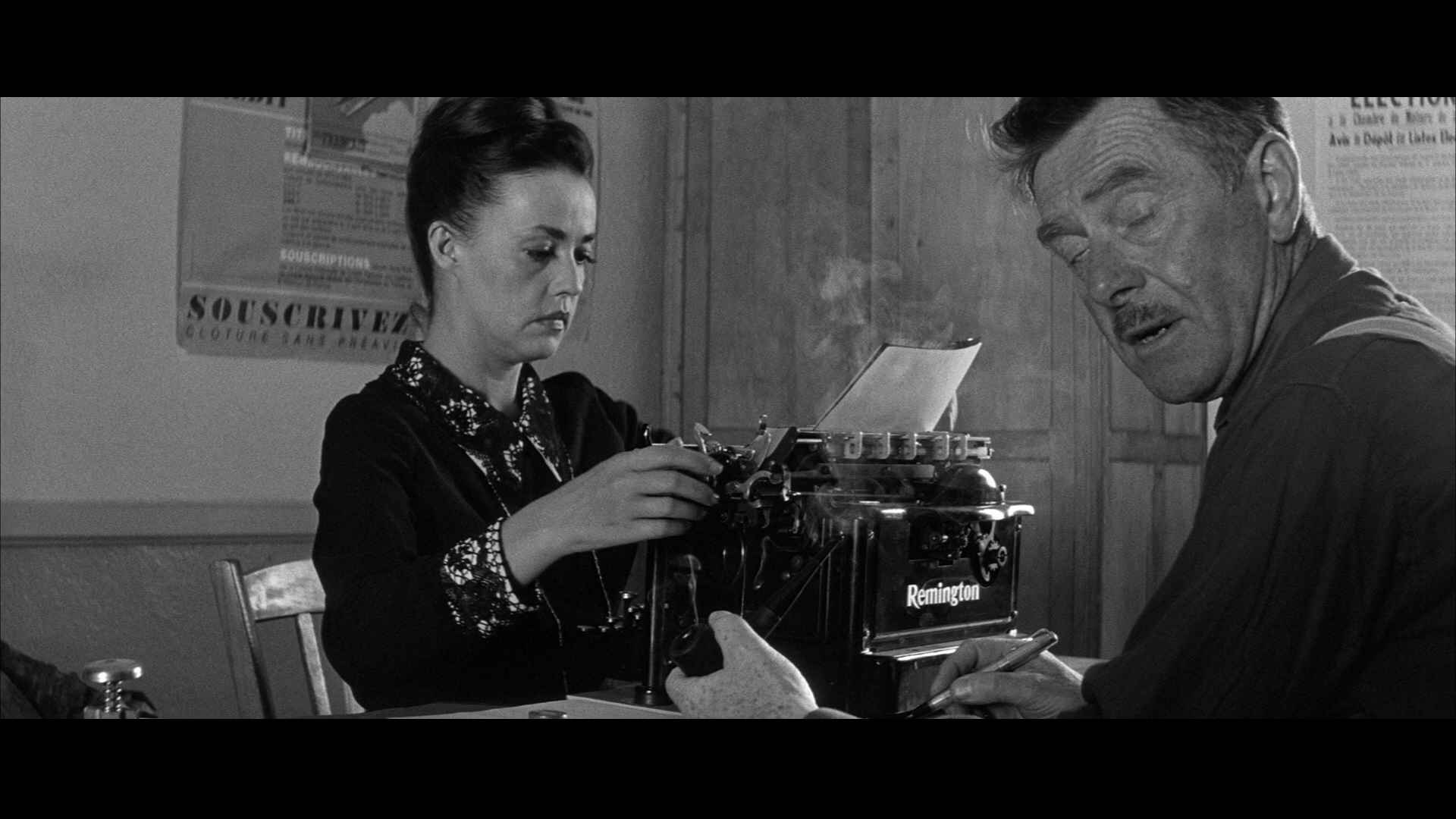 sleaze can be very, very thin, with directors like Pasolini, Fellini, and Bergman known to fling taboo content in the faces of completely unprepared viewers. One of the more under the radar entries from the 1960s era of this approach is Mademoiselle, a study in psychopathic, destructive behavior and mob mentality from director Tony Richardson, who had recently reached Oscar glory with 1963's Tom Jones and followed it up with a shocking double header of this film and the black comedy The Loved One. On top of that the film was developed from a screenplay by none other than French playwright and provocateur Jean Genet, which isn't much of a surprise if you're familiar with some of his other work. A tough sell at the time and never really given its due, the film won a major champion in no less than John Waters, who sang its praises alongside other troubling films ranging from Boom! to Salo. Of course, that should give you some idea of what you're in for here.
sleaze can be very, very thin, with directors like Pasolini, Fellini, and Bergman known to fling taboo content in the faces of completely unprepared viewers. One of the more under the radar entries from the 1960s era of this approach is Mademoiselle, a study in psychopathic, destructive behavior and mob mentality from director Tony Richardson, who had recently reached Oscar glory with 1963's Tom Jones and followed it up with a shocking double header of this film and the black comedy The Loved One. On top of that the film was developed from a screenplay by none other than French playwright and provocateur Jean Genet, which isn't much of a surprise if you're familiar with some of his other work. A tough sell at the time and never really given its due, the film won a major champion in no less than John Waters, who sang its praises alongside other troubling films ranging from Boom! to Salo. Of course, that should give you some idea of what you're in for here. 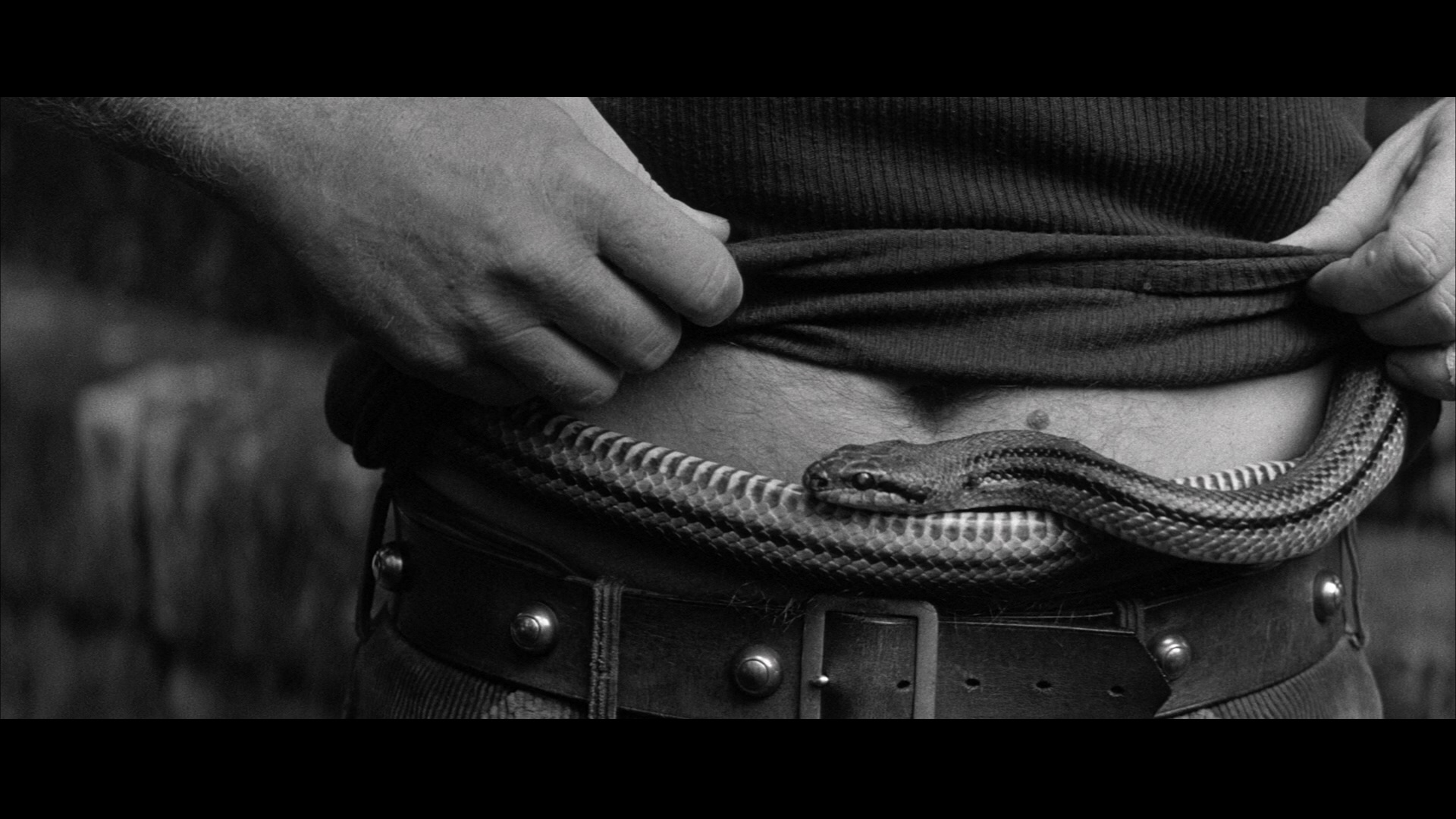 wives. A night of passion between them ignites some very kinky degradation fantasies as well as the realization that she might have the perfect person to deflect blame for her crimes, setting off even more turmoil among the locals.
wives. A night of passion between them ignites some very kinky degradation fantasies as well as the realization that she might have the perfect person to deflect blame for her crimes, setting off even more turmoil among the locals.  Laden with sexual symbolism (that snake!) and twisted melodrama that had many critics scoffing at the time, Mademoiselle is an undeniably gripping viewing experience that's easier to appreciate now as a forerunner to arty madwoman shockers to come like The Piano Teacher and Antichrist. As you'd expect, Moreau is superb here etching a terrifying and reprehensible character who's figured out how to use her standing in the community (not to mention the inherent tendency to doubt the statements of children) to get away with all kinds of antisocial behavior in broad daylight. However, the MVP here may actually be cinematographer David Watkin (who later won an Oscar for Out of Africa and also shot The Devils and To the Devil a Daughter), here delivering a string of gorgeous scope, black-and-white compositions that make the film a real feast for the eyes.
Laden with sexual symbolism (that snake!) and twisted melodrama that had many critics scoffing at the time, Mademoiselle is an undeniably gripping viewing experience that's easier to appreciate now as a forerunner to arty madwoman shockers to come like The Piano Teacher and Antichrist. As you'd expect, Moreau is superb here etching a terrifying and reprehensible character who's figured out how to use her standing in the community (not to mention the inherent tendency to doubt the statements of children) to get away with all kinds of antisocial behavior in broad daylight. However, the MVP here may actually be cinematographer David Watkin (who later won an Oscar for Out of Africa and also shot The Devils and To the Devil a Daughter), here delivering a string of gorgeous scope, black-and-white compositions that make the film a real feast for the eyes. 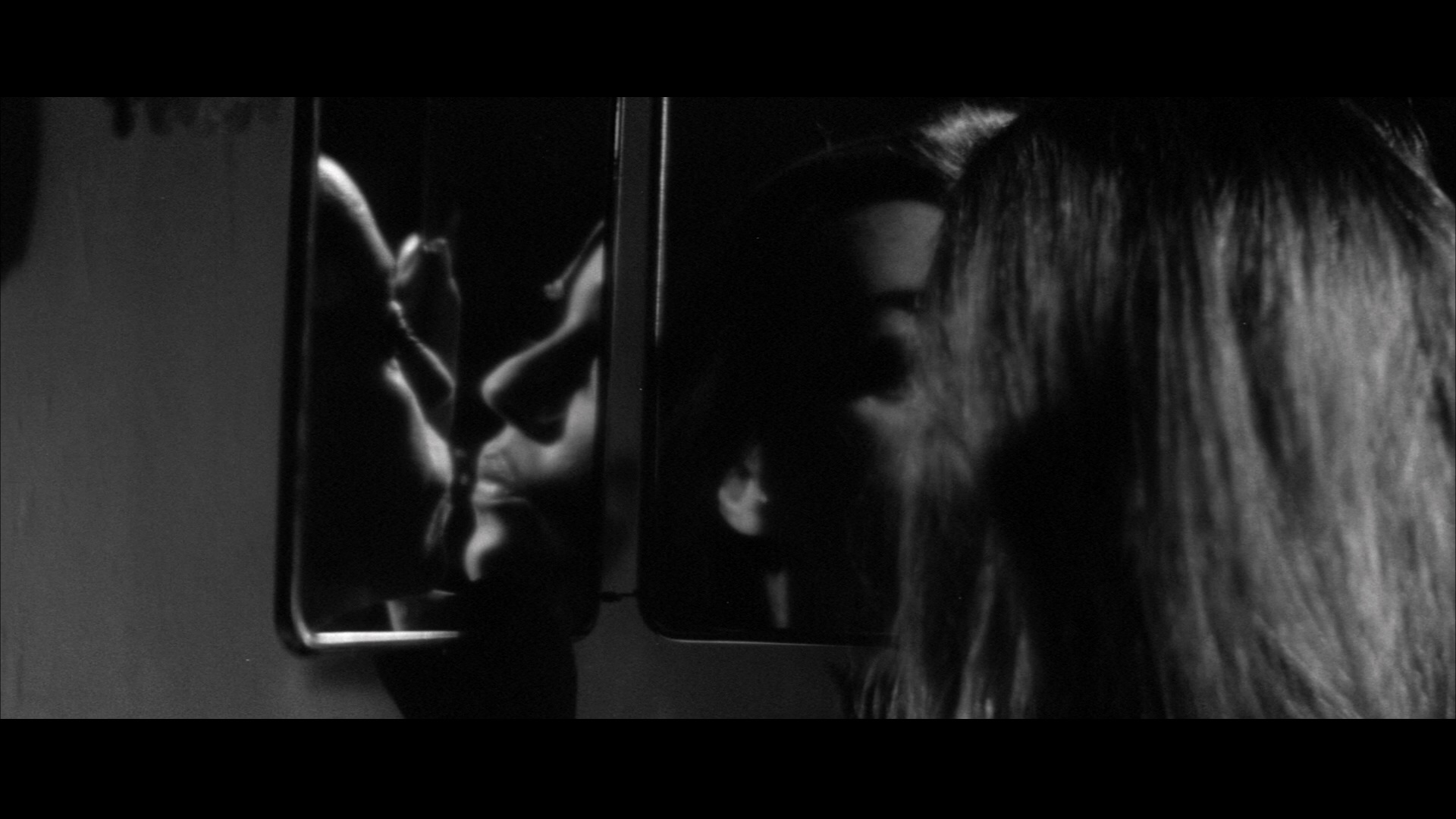 optional English SDH subs are also provided for the entire feature. The LPCM mono audio sounds solid given the limited
optional English SDH subs are also provided for the entire feature. The LPCM mono audio sounds solid given the limited  amount of dialogue or music in the film. Not surprisingly, the image quality blows away the lackluster releases before it; there's some visible element damage in the opening credits, but after that it's mostly smooth sailing with just a few bits of age-related debris popping up at times. The black levels look especially great here, and you can finally make out all the little details in the forest shots that mostly turned to mush before this. A new audio commentary by Adrian Martin starts off by refuting the supposed involvement of Marguerite Duras and then goes into the history behind the film with a focus on Genet, Richardson, and Moreau. In a new video interview with Keith Skinner (36m2s), the actor (who plays Manni's put-upon son) discusses his entry into acting, a goof up involving The Beatles, his entry into Woodfall, the film's rocky reception at Cannes, and his later roles including a screen test for Franco Zeffirelli. Though not touted as such, this release is also a double feature of sorts since it also includes a second feature film, 1982's Doll's Eye (74m26s), a strangely sinister look at the intersecting lives of three women (an academic, a switchboard operator, and an escort) in London, with male characters and voice overs showing how they're perceived and classified on a daily basis. A very curious and challenging rarity, this one's well worth checking out though taken from a modest SD source; in particular, it's fun seeing a starring role for actress Bernice Stegers, who had just come off of starring in Lamberto Bava's Macabre and Federico Fellini's City of Women and would appear in Xtro the same year. The theatrical trailer (full screen but in much better shape than the one on the DVD) is also included along with a substantial image gallery (6m). The first pressing comes packaged with an insert booklet featuring liner notes by Jon Dear and Neil young plus notes on Genet by Jane Giles and a piece on Doll's Eye by its director, Jan Worth.
amount of dialogue or music in the film. Not surprisingly, the image quality blows away the lackluster releases before it; there's some visible element damage in the opening credits, but after that it's mostly smooth sailing with just a few bits of age-related debris popping up at times. The black levels look especially great here, and you can finally make out all the little details in the forest shots that mostly turned to mush before this. A new audio commentary by Adrian Martin starts off by refuting the supposed involvement of Marguerite Duras and then goes into the history behind the film with a focus on Genet, Richardson, and Moreau. In a new video interview with Keith Skinner (36m2s), the actor (who plays Manni's put-upon son) discusses his entry into acting, a goof up involving The Beatles, his entry into Woodfall, the film's rocky reception at Cannes, and his later roles including a screen test for Franco Zeffirelli. Though not touted as such, this release is also a double feature of sorts since it also includes a second feature film, 1982's Doll's Eye (74m26s), a strangely sinister look at the intersecting lives of three women (an academic, a switchboard operator, and an escort) in London, with male characters and voice overs showing how they're perceived and classified on a daily basis. A very curious and challenging rarity, this one's well worth checking out though taken from a modest SD source; in particular, it's fun seeing a starring role for actress Bernice Stegers, who had just come off of starring in Lamberto Bava's Macabre and Federico Fellini's City of Women and would appear in Xtro the same year. The theatrical trailer (full screen but in much better shape than the one on the DVD) is also included along with a substantial image gallery (6m). The first pressing comes packaged with an insert booklet featuring liner notes by Jon Dear and Neil young plus notes on Genet by Jane Giles and a piece on Doll's Eye by its director, Jan Worth. ![]()